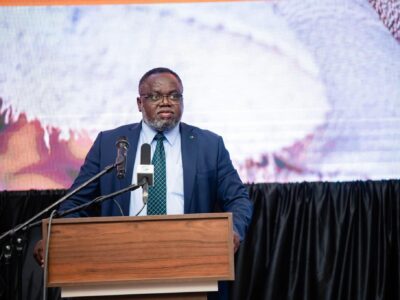An estimated 20 million people in four Southern African countries will require food assistance due to poor harvests and low food stocks.
By May 2024, states of emergency had been declared in Namibia, Malawi, Zambia, Zimbabwe, and Madagascar, with high humanitarian needs projected into early 2025.
According to the United Nations, around 10 million people in Zambia alone would be impacted by the drought, affecting livelihoods nationwide.
Speaking at the Regional Conference of Youth on Climate Change for Southern Africa in Lusaka on Wednesday, UN Resident Coordinator, Beatrice Munthali, in a speech read by UNDP Resident Representative James Wakiaga, highlighted the situation.
“Up to 3.5 million children will require nutrition treatment in Angola, Malawi, Madagascar, Mozambique, Namibia, Zambia, and Zimbabwe,” Munthali noted.
She stated that the climate crisis was restricting access to essential services such as health, water and sanitation, education and social protection, particularly for vulnerable populations.
Munthali also warned of rising risks of school dropouts, gender-based violence, early marriages, and unintended pregnancies, all exacerbated by climate change and further affecting children’s and youth’s development.
“This critical situation demands urgent, gender-inclusive responses with children and youth in leadership roles,” she said.
Despite bearing the brunt of these challenges, Munthali pointed out that children and youth were often sidelined in environmental negotiations and climate change policymaking.

The regional conference, she added, offered youth the chance to create innovative solutions as their future hangs in the balance.
Read More: Zambia’s drought response must focus on child protection, says UNICEF
“The conference is a crucial step in ensuring that children and youth are part of decision-making processes,” Munthali concluded.
Dr. Oita Etyang, COMESA’s Head of Governance, Peace, and Security, pledged regional support to provide an enabling environment for young people to find solutions to the effects of climate change.
RCOY Chairperson, Silishebo Nawa, echoed the importance of youth involvement, stating, “The RCOY is more than a youth event; it is a multi-stakeholder platform fostering regional collaboration and mobilizing collective action on climate change.”
Esnart Ndlovu, RCOY Vice Chairperson and Zambian Youth Advocate, highlighted the event’s focus on climate justice, sustainable development and indigenous knowledge in climate adaptation and mitigation.
WARNING! All rights reserved. This material, and other digital content on this website, may not be reproduced, published, broadcast, rewritten or redistributed in whole or in part without prior express permission from ZAMBIA MONITOR.












Comments